Bug-spread baby deaths 'could have been prevented'
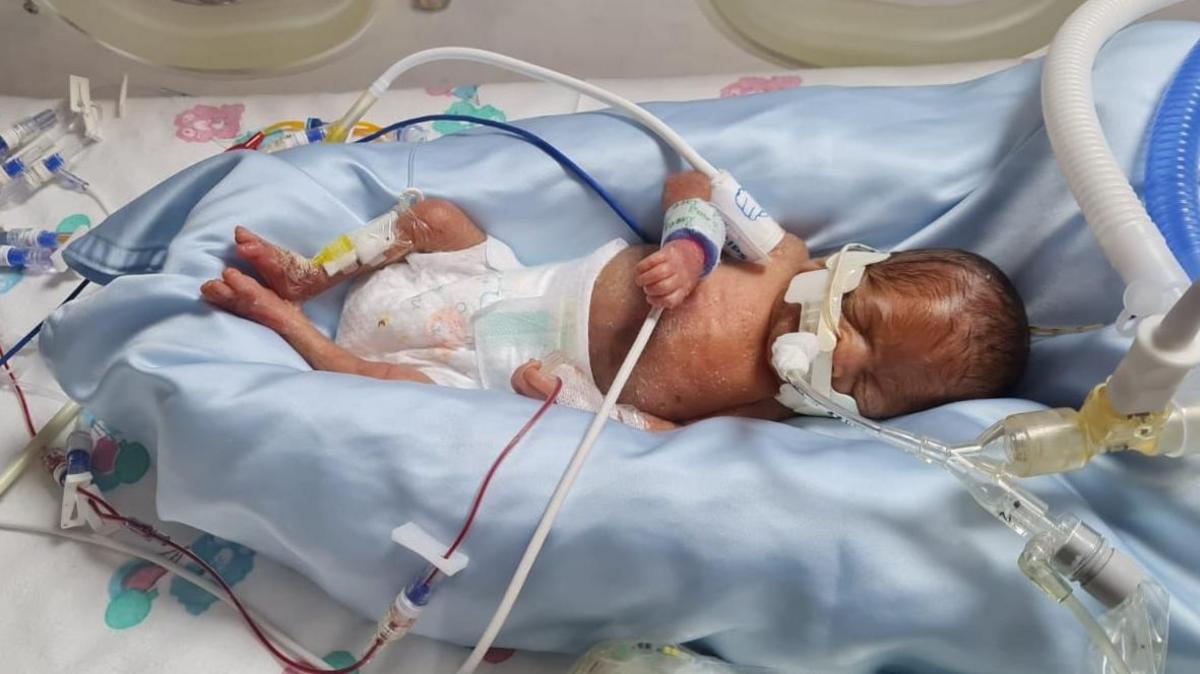
Baby Harris was born four months prematurely at Bradford Royal Infirmary
- Published
Two babies died on a hospital’s neonatal intensive care unit during a bacterial outbreak which could have been prevented, the BBC has learned.
An internal investigation by Bradford Royal Infirmary (BRI) said lapses in hygiene practices allowed the drug-resistant bugs to spread.
Five other infants were found to have the same Klebsiella pneumoniae strain during the outbreak in November 2021. The mother of a two-week-old boy who died said she felt “betrayed” by the hospital and had begun legal action.
Bradford Teaching Hospitals NHS Trust said it had implemented new infection control measures, brought in additional training and increased staffing levels.
A nurse who previously worked at the neonatal unit told the BBC staff faced “extremely strenuous” conditions which led to “medical mistakes”.
The trust’s internal probe into the outbreak found there had been a “missed opportunity” to provide the most appropriate antibiotics for two-week-old Harris - not his real name - when he first fell ill.
A patient safety incident investigation report, circulated internally in March 2022 and seen by the BBC, also said infection control practices which could have stopped the spread of Klebsiella “were not being implemented consistently” by staff in the unit.
The babies who died were both born several months prematurely and were being cared for in the same room of the neonatal unit at the time of the outbreak.
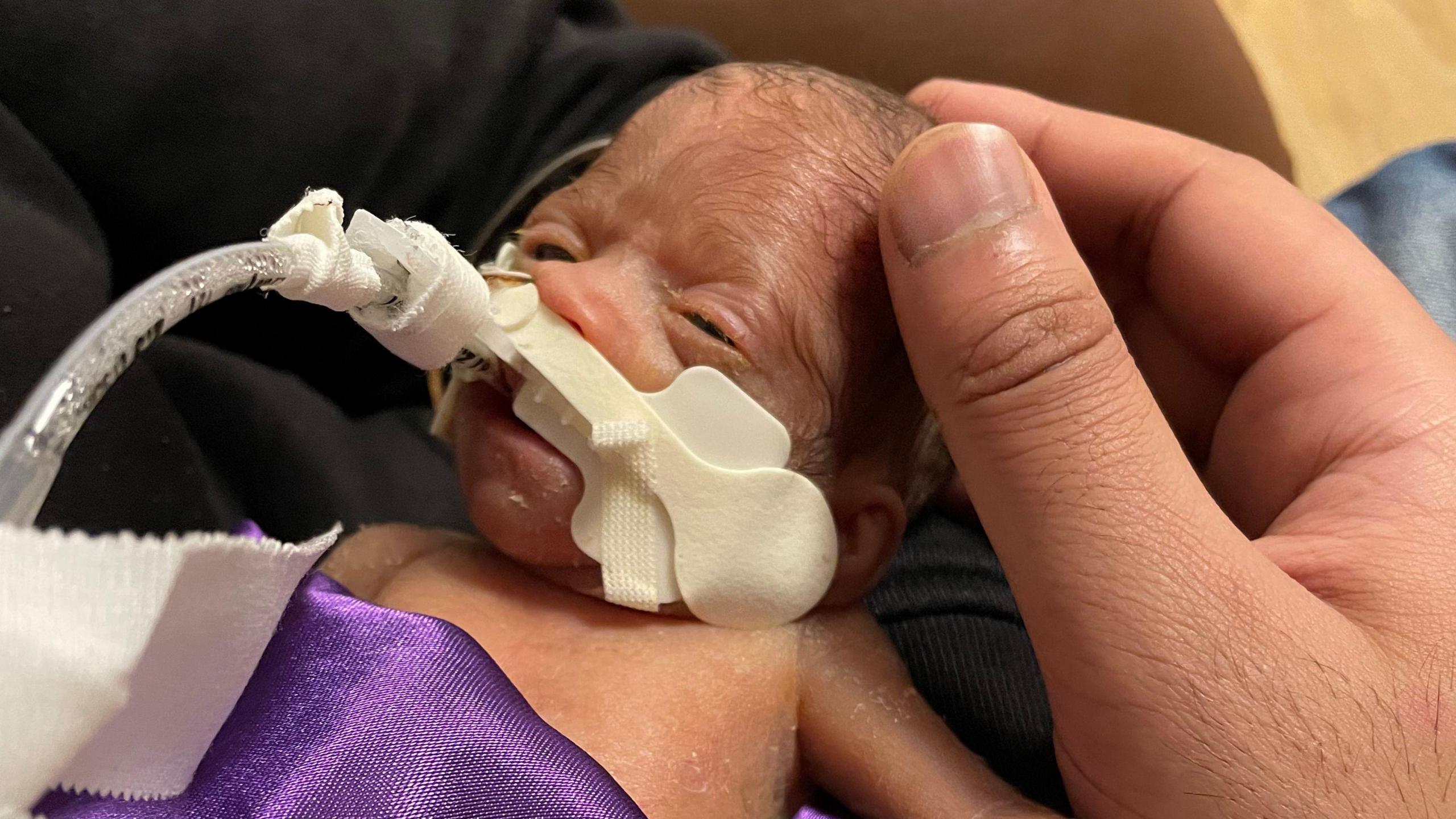
Baby Harris died in his mother's arms shortly after this picture was taken
On 10 November one of the babies was found to have sepsis - a life-threatening blood infection - caused by Klebsiella pneumoniae. But due to staffing levels it was “deemed not clinically safe” to move the infant into isolation, as would usually be expected, the report said. The baby died on 12 November.
If you have been affected by any of the issues raised in this report you can access more help and support via the BBC Action Line.
During a routine screening three days later Harris was also found to have been infected with the bacteria. He died of sepsis on 21 November.
His mother Sarah - not her real name - told the BBC: “It was a really, really difficult time. I couldn’t believe it because he was doing well and then suddenly, he’s gone.
“When it came to him being buried, I just kept thinking, he’d been in the best place with the best care.”
What is Klebsiella?
Klebsiella pneumoniae is a common bacterium that lives in the intestines and is usually harmless.
But if it gets into other parts of the body, such as the bloodstream, it can cause serious infections such as pneumonia - particularly among patients with weakened immune systems.
Some strains are showing growing resistance to the antibiotics doctors usually use to treat infections and can cause serious illness or death, even in previously healthy people.
The World Health Organisation (WHO) has said it is “very concerned” about drug-resistant bacteria such as Klebsiella, warning these so-called superbugs are “a major global health threat”.
The number of Klebsiella infections has been increasing in UK hospitals - with 11,823 cases recorded by NHS trusts in 2022-23, up 3% on the previous year, according to UK Health Security Agency data.
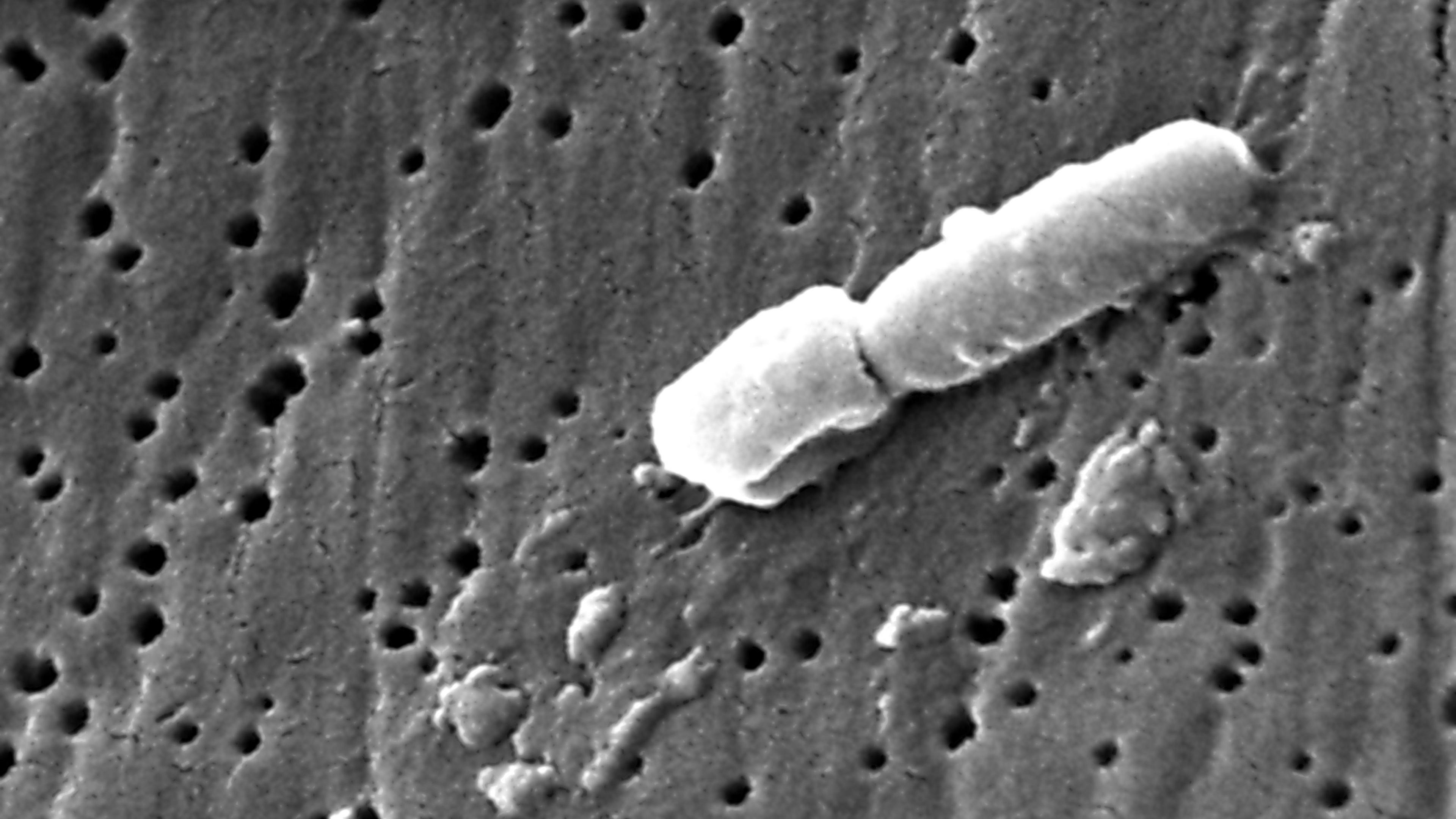
The WHO has warned Klebsiella pneumoniae bacteria is showing growing resistance to antibiotics
Sarah, from Bradford, was only 22 weeks pregnant when she went into labour with Harris.
“My husband and I thought we were going to lose the baby, we were terrified,” said Sarah, who was aged 25 at the time.
But despite being born four months prematurely, Harris seemed to be healthy and medics at BRI had no major concerns about him until he became unwell about a week after birth.
Doctors told his parents the baby in the neighbouring cot had died of an infection which had been passed to Harris.
Sarah said she had never heard of Klebsiella before, adding: “It was horrible reading about it, I realised that it’d spread from baby to baby and couldn’t understand how.”
Over the next few days, Harris’s health deteriorated and he died in his mother’s arms as she cradled him for the first time.
Sarah said: “I didn’t expect to go into hospital, give birth to a baby and then take him home to be buried.”
Four months after Harris died, the NHS trust’s report on his death landed on his parents’ doorstep.
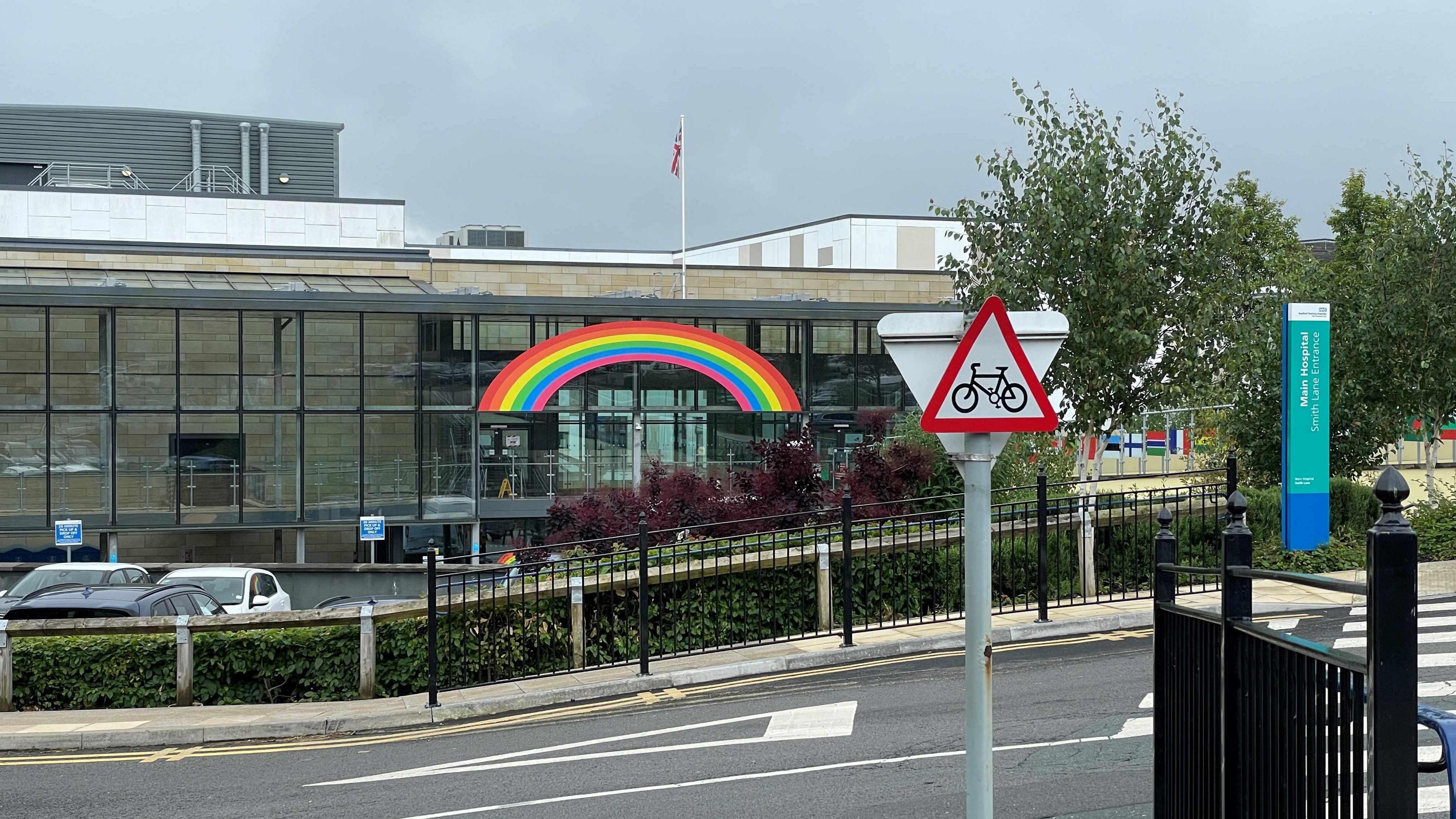
Two babies died after being infected with Klebsiella pneumoniae at Bradford Royal Infirmary
It revealed an investigation had found staff in the neonatal unit were not “consistently” following hand hygiene guidelines at the time of the outbreak and “seemed unclear” about where and when personal protective equipment was required.
The report also said there was a “missed opportunity to make an earlier change” to Harris’s antibiotic therapy because the detection of Klebsiella pneumoniae in the unit had not been communicated.
Five other infants were found to have the strain in their bodies during the outbreak, which forced the hospital to temporarily close the unit to new admissions, but none of them required treatment.
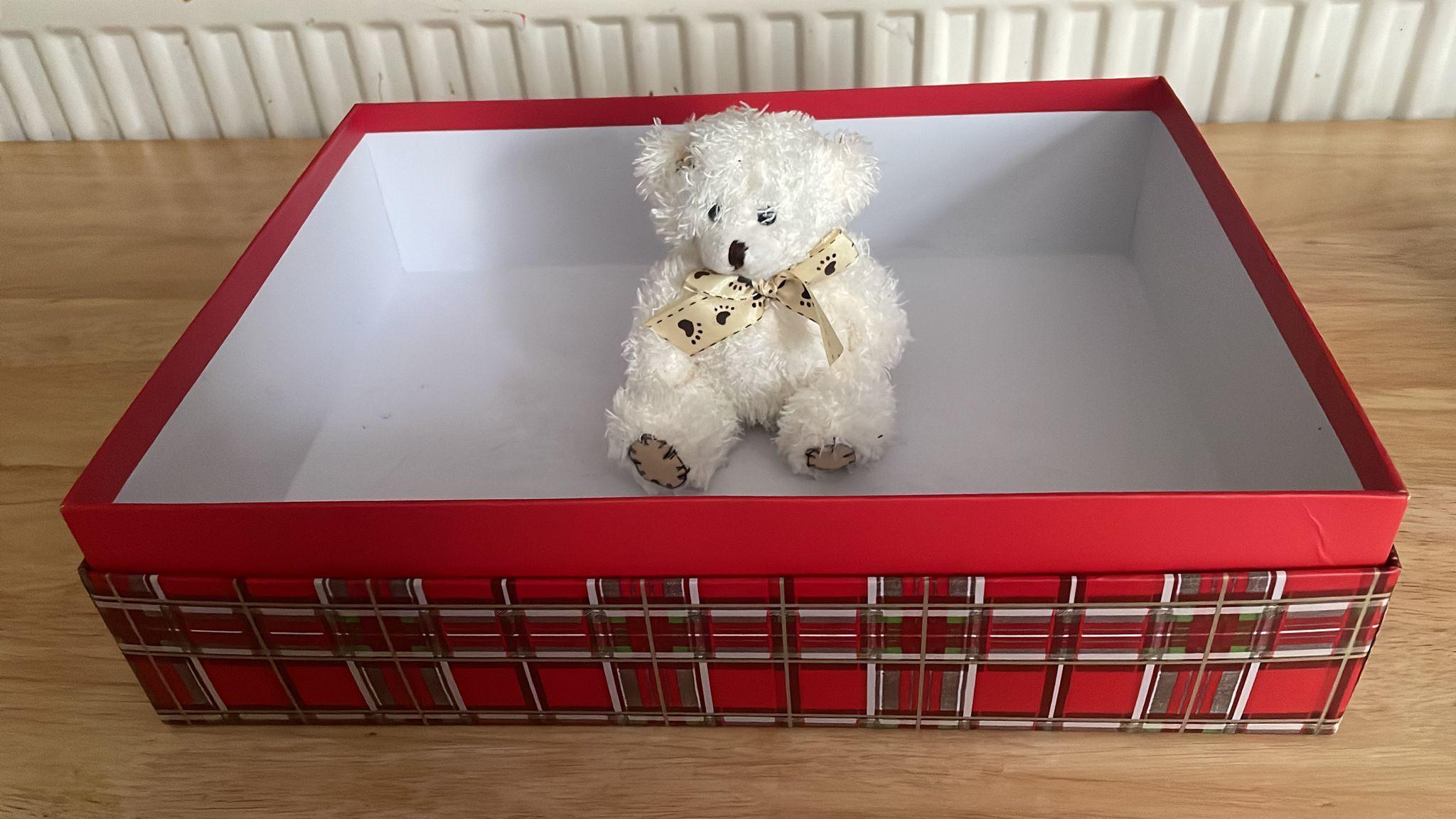
Hospital staff presented Sarah with a teddy as a token of condolence to the family
Hannah Lucy Delahoyde, a solicitor at Irwin Mitchell who is representing the family, said she was “shocked and horrified” to see “all of the things that went wrong” and “how easy it could have been to prevent the death of this baby”.
“My heart broke for the family to know that if those simple changes could have been made the baby might be with them now,” she added.
Sarah, who has brought a medical negligence claim against the NHS trust, said: “I hope BRI learn from this and make sure it never happens again.”
The two babies who died in November 2021 were not the first that year to lose their lives after being infected with Klebsiella at BRI.
Seven months earlier, in April, another baby died after being infected with a different strain of the bacteria.
'More vigilant'
Timothy Walsh, professor of medical microbiology at the University of Oxford, said lessons should have been learned from the earlier outbreak.
“It surprises me and disappoints me because if you have a look at the April report there’s no mention of improving infection prevention control practice,” he said.
Prof Walsh, who has studied drug-resistant superbugs for 25 years, said there “should have been intensive swabbing and staff should have been more vigilant” after the bacteria was first detected in November 2021.
A nurse who previously worked at the hospital’s neonatal intensive care unit said staff were tired and overworked.
She told the BBC: "While I was working there the conditions were extremely strenuous, the staff I was working with were doing extremely long hours, they weren’t able to take regular breaks and that led to fatigue which led to unintentional medical mistakes.
“You know nurses know that proper handwashing technique is important, but if you’re overworked that becomes really difficult.”
She added: “In neonatal intensive care you should have a ratio of one baby to one nurse but sometimes that would be three babies to one nurse or two babies to one nurse. I’d go to work anxious thinking ‘Am I going to have that adequate support that I need to provide the adequate level of care?’”
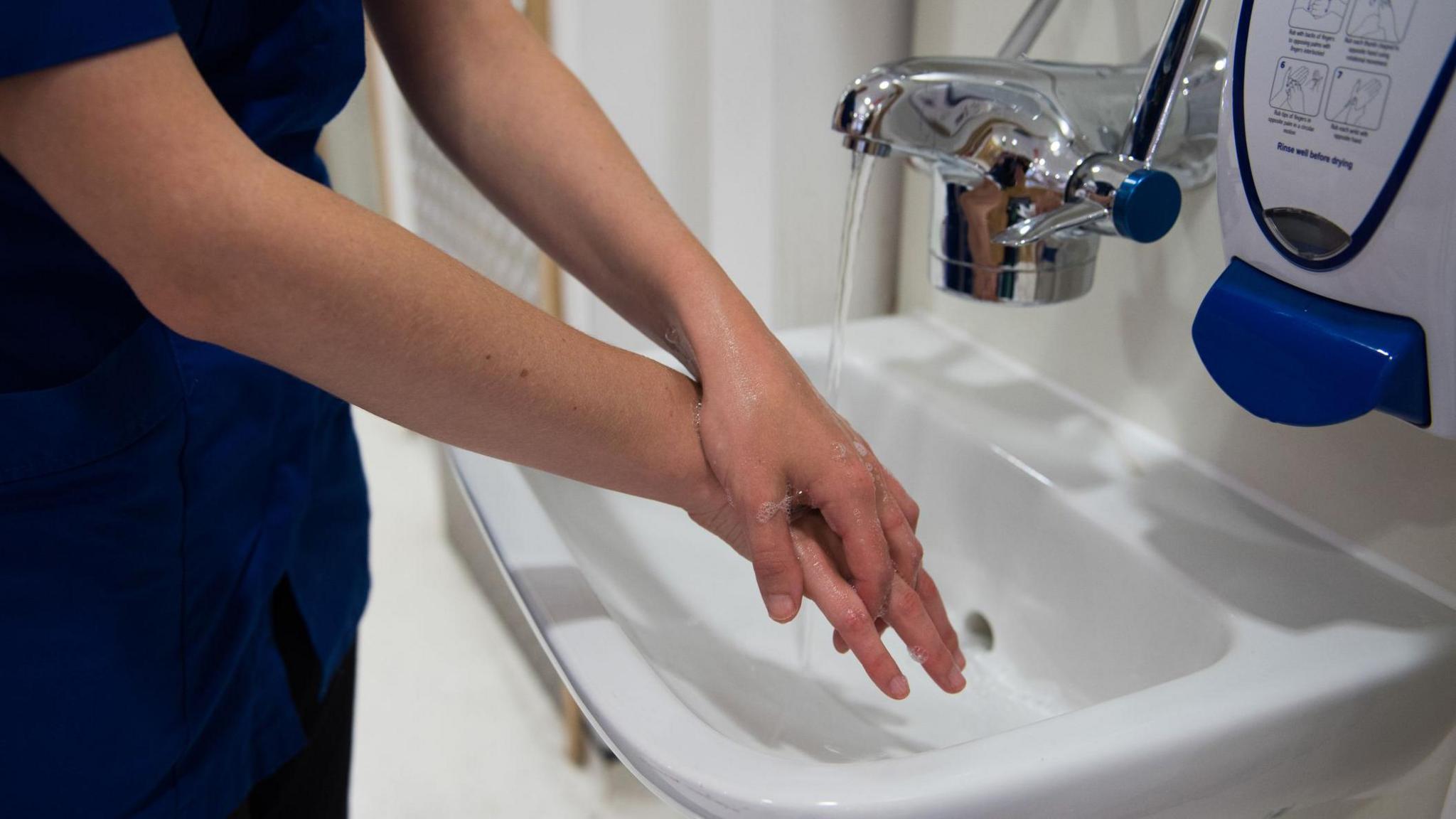
One nurse told the BBC "overworked" staff would sometimes find it difficult to observe proper handwashing technique
Bradford Teaching Hospitals declined to answer the BBC’s questions about staffing levels on the neonatal intensive care unit and the number of infection-related deaths at the hospital.
A spokesperson for the trust offered their "sincere condolences to the families affected for their sad loss, and said they had put in place "additional infection prevention and control measures" and increased "staffing levels and training for neonatal nurses to provide intensive care."
“A recent assurance review of our neonatal services carried out by NHS England concluded that the service provides safe, high-quality care," they added.
A Department of Health and Social Care spokesperson said: “Our deepest sympathies are with the families affected in this tragic case.
“The government will deliver the biggest expansion of NHS staff in history with more doctors, nurses and midwives to deliver the quality, safe care patients and their families deserve.”
If you have more information on this story or want to tell me about a similar experience, you can contact me at sabbiyah.pervez@bbc.co.uk, external